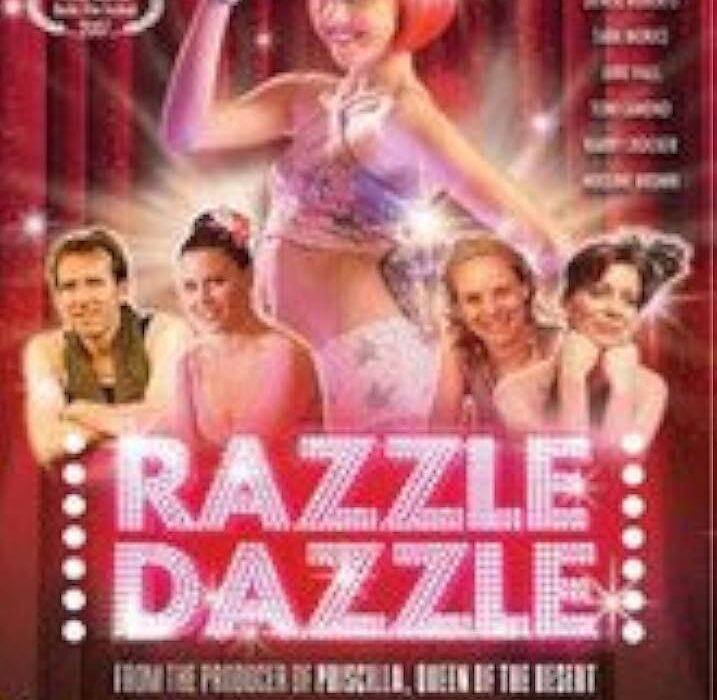The Unrelated Chronicle, Arts & Amusements Section
April 17, 1931 Edition
“Le Razzle Dazzle” – A Show of Shadows and Striptease in the American Abyss
by f. ellas, editors at large
In an age where men no longer wear hats indoors and polite society has been battered by the winds of social “progress,” I sought refuge last evening in the moving picture house, hoping for a whiff of the old razzle and, if the stars aligned, a touch of dazzle. What I witnessed instead was Le Razzle Dazzle, a curious pageant buried within the motion picture The Last Showgirl—a melancholy burlesque that slips between sadness and sincerity with all the grace of a chorus girl past her prime.
The Positives – In Fading Light
To its credit, the show’s structure doth not insult the intelligence of its viewer with ceaseless babble or tiresome explanation. No, this is a tale told in whispers—drip-fed through smoke-filled dressing rooms and half-lit corridors. One finds the full picture only in the final reel, and it is a grim one, indeed.
The unexpected deployment of “Total Eclipse of the Heart,” that fine musical number from an era that knows not restraint, served as a hinge upon which the entire work turned. No embellishment, no flourish—just song and heartbreak, laid bare.
Miss Curtis, who takes on the role of the titular showgirl, brings forth a performance that aches. She is not a woman, but a ruin; not a character, but a confession. Her body speaks, and what it says is bitter truth. One might say she is broken, but I should call her beautifully so.
But the true triumph is not the performance, nor the script, but the setting—a backdrop not painted but lived. The decay of American aspiration; the hollow promise of neon; the rattle of coins never earned. This is the country beneath the sequins—a landscape of collapse and yearning.
The Negatives – In Harsh Exposure
Why, pray, must we continue this obsession with film when the wonders of post-production offer every corrective a gentleman might desire? The vignetting was aggressive, the grain intentional but indulgent. There is, after all, no virtue in ugliness.
Furthermore, the character Hannah returns to the fold with a whimper, not a war. A daughter estranged, yes—but her arc collapses in upon itself. She blames her mother, but offers no journey of her own. Is forgiveness so cheap now? Is adulthood so easily shrugged off?
And let us speak plainly: the tale, while cloaked in sequins and sorrow, is naught but another coming-of-age story, except here the age is not sixteen but sixty. There are moments that suggest wisdom, but more that reek of retread.
Final Notes
Yes, yes—before the telegrams arrive, I hear the clamor of our changing times. I am aware one can no longer express certain ownerships, nor enjoy certain separations without raising the ire of the younger set. Yet I find some solace that not every threshold has been surrendered.
Still, in this flickering shadowplay, one sees that America’s real theatre is not on stage but on its knees—dancing for coins, forgotten by morning.
Three out of five monocles. A slow, sad strip down the spine of a nation.
4/10

